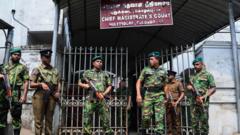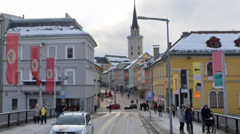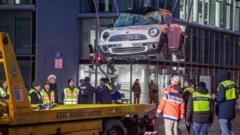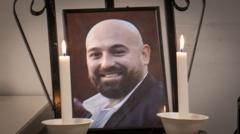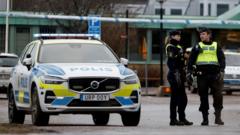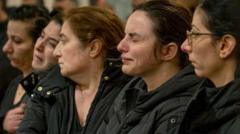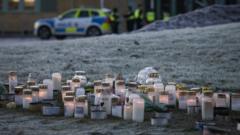In the aftermath of the deadliest mass shooting in Sweden's history, the communities in Örebro are grappling with fear and questions surrounding racial motivation. Eyewitnesses and locals express their shock while the police investigation continues.
Sweden's Grief and Fear After Tragic School Shooting
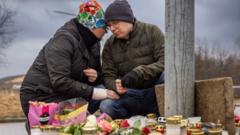
Sweden's Grief and Fear After Tragic School Shooting
A mass shooting at an adult learning center has shocked Sweden, leaving a community in mourning and raising questions about racial targeting.
The small community of Örebro, Sweden, is trying to comprehend the tragedy that unfolded at an adult learning center, now recognized as the country’s deadliest mass shooting. Among those affected is Ismail Moradi, a 16-year-old student who visited the memorial site not with textbooks, but with flowers for the victims. His school, primarily attended by newcomers, is located a stone’s throw away from where the attack occurred. “I was shocked and didn't know if I wanted to come to school today after what happened so nearby,” he expressed, voicing concerns about a possible racial motive behind the attack.
Intense sorrow hangs over the area as locals continue to gather, lighting candles and paying respects to those lost. The atmosphere was punctuated by silence when King of Sweden visited to honor the victims, reflecting a nationwide mood of grief as flags were flown at half-mast. However, despite the somber atmosphere, many Swedes are left desiring a clearer understanding of the reasons behind the heinous act.
The police investigation is in full swing, with over 100 specialist officers deployed to unravel the details of the shooting. Reports about a 35-year-old local man, believed to be the gunman and a legal gun owner, add to the complexity of the case, especially as he remains largely unfamiliar to police prior to this incident.
Concerns are amplified amongst the immigrant community, illustrated through the words of Reham Attala, a 21-year-old law student who expressed deep concern about her future in Sweden. “This shouldn’t have happened,” she lamented, noting the target of the attack—an educational institution for immigrants wishing to learn Swedish—to be particularly alarming. With a Syrian father and a Palestinian mother, Reham identified strongly with the victims and reflected on whether she would feel safe raising a family in the current climate.
As the police investigation unfolds, the pressing need for answers looms large, echoing the sentiments of a shaken nation that once viewed its educational institutions as safe havens for learning and personal growth.



